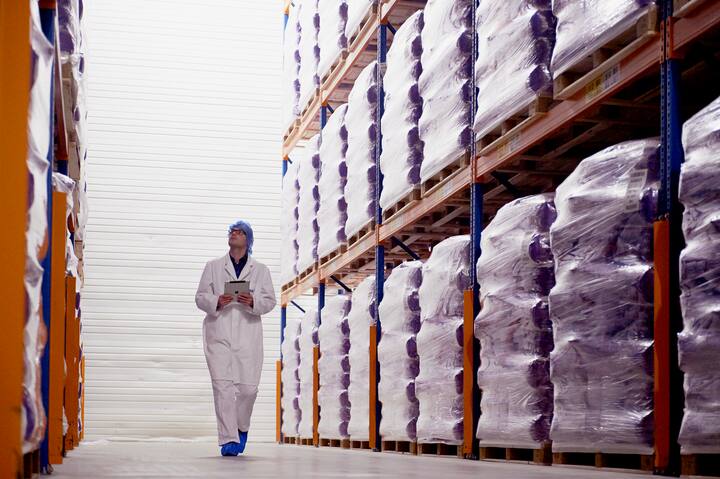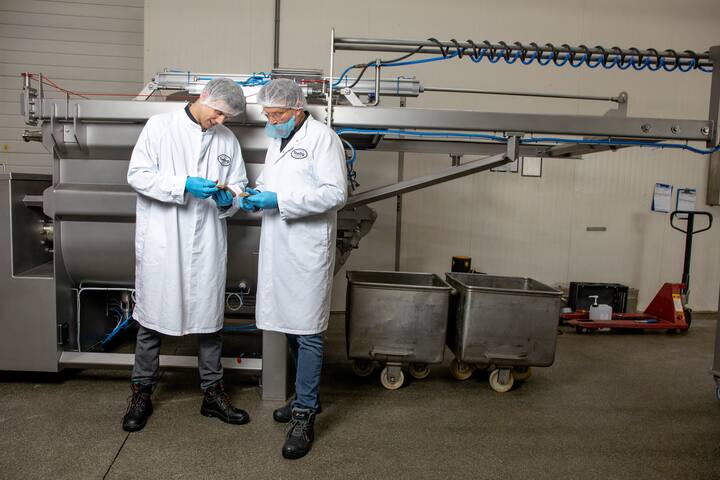
Leading in Sustainability Advice and Guidance
Sustainability advice and guidance
Sustainability remains a strategic priority for an increasing number of organisations across the food chain. Food systems account for 29% of global greenhouse gas emissions, while food production is linked to 70% of terrestrial biodiversity loss, according to WWF's Plan for the Planet. These figures highlight the sector's environmental impact. The key question for organisations is: how can you make a meaningful contribution to sustainable transformation, and where should you begin?
Sustainability advice and guidance at a glance
Make a difference with a sustainable food chain
Achieve quick wins
Set long-term goals
For food, packaging, and logistics sectors
The three Rs
Contributing to a sustainable food chain begins with taking responsibility. The first step involves integrating sustainability into your company policy. The second step is to identify and implement reduction and recycling opportunities within your organisation. We refer to this framework as 'the three Rs': Responsibility, Reduce, and Recycle. These steps enable you to translate sustainability ambitions into concrete actions that achieve your organisation's sustainability objectives. Normec supports you throughout every stage of this process. Together, we ensure good and safe food whilst building a sustainable food chain that will continue to deliver quality and safety for future generations.
Responsibility
Sustainable entrepreneurship goes hand in hand with responsible business practices. Compliance with legislation and regulatory requirements is essential. Besides, clients increasingly expect recognised certifications, such as ISO 14001 or the CSR Performance Ladder. These standards also offer frameworks for integrating sustainability goals across your organisation. We support you in meeting legal and certification requirements, conduct audits, provide guidance throughout the certification process, and assist during inspections by regulatory authorities. Responsible entrepreneurship also involves transparency, such as through reporting. Contributing to a healthier food chain is another important aspect of responsible business, and we are here to support you in that journey as well.
Reduce
The food sector is a significant consumer of water and energy, making resource reduction a key priority. But how can this be effectively achieved? We support you in identifying and implementing reduction strategies, without compromising food safety or product quality. We support you in delivering safe, high-quality food while reducing your ecological footprint. Reduction is also closely linked to the issue of food waste: a challenge faced across the entire food supply chain. Tackling food waste is a growing priority not only for governmental bodies but for businesses as well. The United Nations, for instance, has set an ambitious goal to halve global food waste by 2030. There are numerous opportunities to reduce waste, and we are here to help. From streamlining production processes to enhancing shelf life communication, our consultants collaborate with you to identify and implement sustainable, efficient solutions.
Recycle
Recycling is an important step in achieving sustainable business operations, just like a sustainable food chain is. Packaging materials and waste streams play an important role in this. We advise you on possibilities and opportunities when it comes to reusing materials, waste streams, rework, and the use of recyclable packaging materials. Food safety and quality remain paramount, so that your customers are assured of good and safe products.
These services might also be of interest to you

Mystery Guest

Guiding certification

Setting up a quality system
Leading companies in this service

Normec QA
Antwerpen Belgium
Do you want to create a safe and healthy working and living environment?
FAQ
Frequently asked questions
Food systems account for 29% of global greenhouse gas emissions and significantly impact biodiversity. Sustainability consulting helps organisations reduce their environmental footprint, comply with legislation, and meet growing consumer and stakeholder expectations.
The three R’s: Responsibility, Reduce and Recycle form a practical framework for integrating sustainability. They guide companies in embedding responsible policies, cutting waste and energy use, and adopting circular solutions.